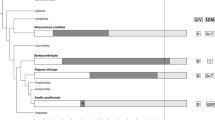Abstract.
In many reptile species, sexual differentiation of gonads is sensitive to temperature during a critical period of embryonic development (thermosensitive period, TSP). Experiments carried out with different models among which turtles, crocodilians and lizards have demonstrated the implication of estrogens and the key role played by aromatase (the enzyme complex that converts androgens to estrogens) in ovary differentiation during TSP and in maintenance of the ovarian structure after TSP. In some of these experiments, the occurrence of various degrees of gonadal intersexuality is related to weak differences in aromatase activity, suggesting subtle regulations of the aromatase gene at the transcription level. Temperature could intervene in these regulations. Present studies deal with cloning (complementary DNAs) and expression (messenger RNAs) of genes that have been shown, or are expected, to be involved in gonadal formation and/or differentiation in mammals. Preliminary results indicate that homologues of AMH, DAX1, SF1, SOX9 and WT1 genes with the same function(s) as in mammals exist in reptiles. How these genes could interact with aromatase is being examined.
Similar content being viewed by others
Author information
Authors and Affiliations
Rights and permissions
About this article
Cite this article
Pieau, C., Dorizzi, M. & Richard-Mercier, N. Temperature-dependent sex determination and gonadal differentiation in reptiles. CMLS, Cell. Mol. Life Sci. 55, 887–900 (1999). https://doi.org/10.1007/s000180050342
Issue Date:
DOI: https://doi.org/10.1007/s000180050342




